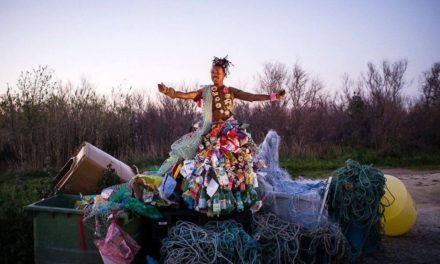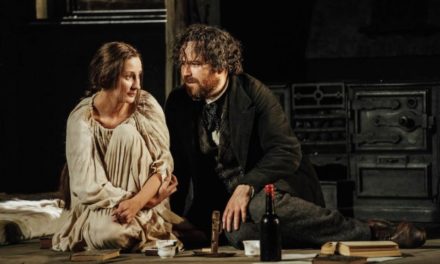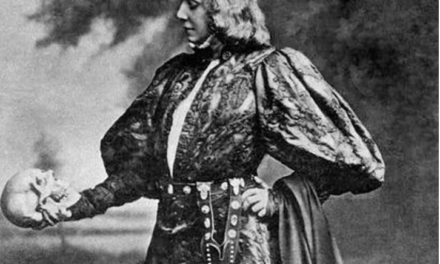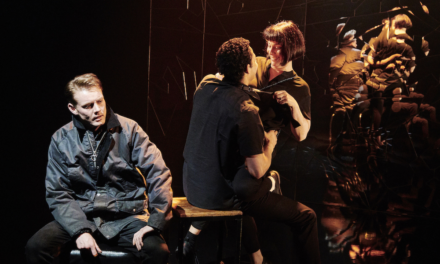The Dublin Fringe Festival celebrates its 25th year this year and duly provided the Irish capital its characteristic combination of artistry, controlled chaos and thought-provoking content. The stated theme of Dublin Fringe 25, was “Power and Pleasure”, an exploration of what power means in Ireland in 2019, who wields it, and how that power is used. One strong through-line emerges, that of women in flux.
Fringe theatre has long provided a platform for women, the queer community and other minorities. The Dublin Fringe Festival determinedly upholds this tradition. Fringe 25 was particularly notable for its selection of a stories and performances witten and performed by women, determindly focusing on the female experience. From Miriam Needham’s solo exposition of one woman’s journey to healing in Compostela, to the comedic yet tragic story of an ice skating rink, as told in Suzanne Grotenhuis’ On Ice (Theatre Royal Plymouth, Big in Belgium and RBC). These stories were both personal and political. Crucial to their success, their female characters were rendered with emotional depth and maturity. A vulnerability is present but they are survivors, and even in the most surreal of performances, these characters feel decidedly real. They are women experiencing external and internal change.
This exploration of the female in flux is perhaps best exemplified by Margaret Perry’s Collapsible (Ellie Keel Productions) which features a powerful and award-winning performance by Breffni Holahan playing Essie, a woman whose life is crumbling. As she slowly implodes, she waits for someone to notice. Collapsible essentially explores what happens when a woman starts slipping through the cracks. The play came fresh from the Edinburgh Fringe Festival with glowing reviews and was awarded the Fishamble Prize for New Writing at the Dublin Fringe. Works like Perry’s, and Compostela, expose the complex and conflicted state of barely functioning, diving deep into the dark mental spaces found at the points where people, and particularly women, have pushed themselves to beyond breaking point. They are both treatises on different reactions to loneliness; Collapsible shows profound isolation, while in Compostela, Miriam Needham’s character makes a conscious choice to eschew people to go in search of an almost mythical connection with Mother Earth.
Also noteworthy are works such as Sarah Richardson’s Girlplay (The Morrígu Productions), a frank and disarming exposition of female sexuality. The shock value of this work is somewhat negated by the extended narrative of the play, which follows a woman throughout her sexual life. It suffers, perhaps unfairly, in comparison to more radical formal approaches in dealing with this topic. In its own right, however, it is a tightly performed piece of spoken word theatre, almost hypnotic in its execution.
Another aspect of the self-in-progress that emerges is working through grief. There is the explicit, straightforward form of grief, resulting from the loss of a loved one. This is seen in Birthright (Nadine Flynn) and Wishful Thinking (Shaunna Lee Lynch, Strive Theatre). Both these plays provide access to difficult emotional states, Birthright using an uncomfortable juxtaposition of emotional rawness and canned laughter. Wishful Thinking explores the different coping mechanisms used to deal with bereavement. They also tackle the sticky issue of intergenerational discussions of grief in thoughtful and thought-provoking ways. The jarring use of canned laughter in Birthright comes to function as a signifier for what must not be spoken by the mother, making it all the more powerful when it disappears. In Wishful Thinking, the complex relationships of mothers, daughters and sisters are all laid bare.
Not all grief is as straightforward, however. On Ice tells the story of grief in the wake of a lost relationship. Collapsible examines the numbing grief for the self, and for lost opportunities. Most complex of all, however, Minefield (Clare Monnelly, axis Ballymun) looks at what happens when dehumanisation interferes with loss, and how the loss of a stranger can easily be written off under certain circumstances, explained away with different excuses. Minefield stands out among the performances seen at this year’s Fringe Festival in its coldness. The story of social media intrigue, anger and the disconnect between men and women is played out with a deliberate lack of a ‘personal touch’. With its use of multi-media interfaces as part of the set, it exists out of time and space, in a way which makes the narrative being told all the more disturbing.
At its core, theatre-making is the art of story-telling, and the 2019 Dublin Fringe Festival provides a varied and exciting range of mediums by which stories are told. Some are familiar to the theatre-goer, such as the monologue narrative of Compostela or On Ice, or the traditional drama mode of Wishful Thinking and Birthright. Others are more disruptive and formally bold; Minefield uses a form of shattered storytelling to show the disconnect of online relationships, while Ode to a Postcode (Freshly Ground Theatre) uses immersive storytelling, in the form of a mid-afternoon cabaret of love-letters, to illustrate the variety of stories on offer in the production. Narratives and narrative forms are paired with different results throughout the festival, to different degrees of success. There is something quite intimidating, for example, about the almost short-story-like performance delivered in Collapsible, the form itself a constant reminder that the audience are only privy to one side of the story. In contrast, the format of Minefield draws attention to the dangers of too much information, without the time or information to contextualise it.
The reoccurring themes and issues resist being being held to societal standards, much as their subjects, women, refuse to conform, to obey. These plays and performances are all indicative of the energy in modern Ireland’s push for change, particularly in regards to women.
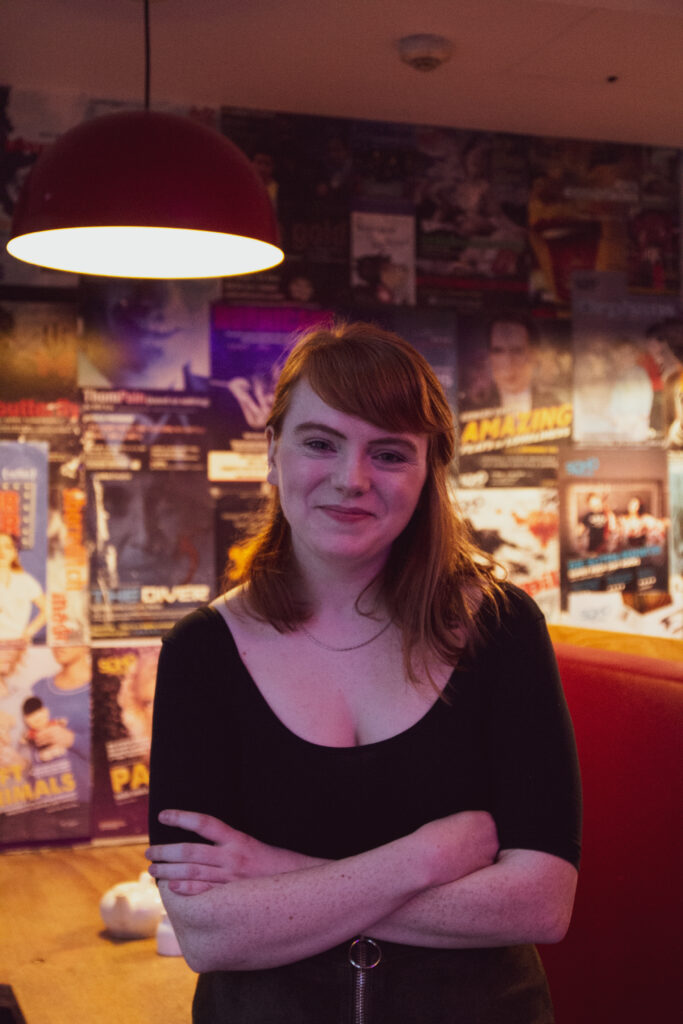
Margaret Perry, whose play Collapsible won the Fishamble New Writing Award at the Dublin Fringe Festival 2019.
This post was written by the author in their personal capacity.The opinions expressed in this article are the author’s own and do not reflect the view of The Theatre Times, their staff or collaborators.
This post was written by Síofra Ní Shluaghadháin.
The views expressed here belong to the author and do not necessarily reflect our views and opinions.

